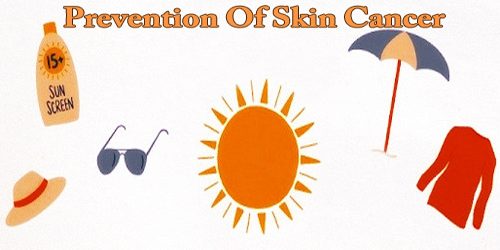Skin cancer is largely preventable, and if caught early, it’s usually curable. Since most skin cancers are linked to sun exposure, it’s important to take precautions when spending time outdoors, no matter what time of year. Too much sun can increase our risk for skin cancer and lead to premature skin aging.
UV radiation from the sun isn’t just dangerous, it’s also sneaky. Not only can it cause premature aging and skin cancer, it reaches us even when we are trying to avoid it penetrating clouds and glass, and bouncing off of snow, water and sand. That’s why preventing skin cancer by protecting our self completely requires a comprehensive approach.
Stay Safe in the Sun –
The majority of sun exposure occurs before age 18 and skin cancer can take 20 years or more to develop. Whether our sunbathing days are behind us or we still spend time pursuing the perfect tan, we should be concerned about skin cancer.
Remember, the sun’s ultraviolet (UV) rays can reflect off water, sand, concrete and snow, and can reach below the water’s surface. Certain types of UV light penetrate fog and clouds, so it’s possible to get sunburn even on overcast days.
The Skin Cancer Foundation recommends that:
- Seek the shade, especially between 10 AM and 4 PM.
- Don’t get sunburned.
- Avoid tanning, and never use UV tanning beds.
- Use a broad-spectrum (UVA/UVB) sunscreen with an SPF of 15 or higher every day. For extended outdoor activity, use a water-resistant, broad-spectrum (UVA/UVB) sunscreen with an SPF of 30 or higher.
- Apply 1 ounce (2 tablespoons) of sunscreen to our entire body 30 minutes before going outside. Reapply every two hours or after swimming or excessive sweating. Find sunscreen by searching our Recommended Products.
- Keep newborns out of the sun. Use sunscreen on babies over the age of six months.
- Examine our skin head-to-toe every month.
Report suspicious skin lesions to a doctor at once, especially if you have abnormal-looking moles or a family history of melanoma.
Wear a hat and other protective clothing while in the sun. Tightly woven fibers and darker clothing generally provide more protection. Also, look for products approved by the American Academy of Dermatology. Wear UV-protective sunglasses.
If people are taking antibiotics or other medication, ask their doctor or nurse if it may increase their skin’s sensitivity to the sun.
Information Sources:
















